RELAUNCH, RESTART

We are expanding our Digital Presence

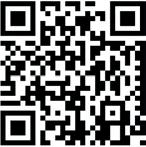
What to expect...
A focus on digital. A focus on content. Reduced ad rates. Online distribution to our 47k email database, social platforms and 50k text database.
Over the last thirteen years, we have registered thousands of Caribbean people or people interested in Caribbean people, food and culture.

We are changing how we message to those people by creating different messages based on type of customer.
For example- you can read the lead article about Dr. Trisha Bailey on our facebook page, you can read it in the newspaper in print, online on our website and if you are a member of our email blast. However you can also listen or look at the video interview which captures so much more. Additionally, the instagram version of that interview will be broken into smaller segments with the major points broken out into individual pieces.
This takes our messaging to people in a way that they consume it.
Our team is here to guide you through this change. We ask you to support by advertising or subcribing as we continue to showcase the Caribbean community.

her latest donation has not been revealed.
that her donation represents something bigger than a historic
1 FREE Your Passport to the Caribbean American Community Jan/Feb 2023 14
cont'd on pg 7
1 www.caribbeanamericanpassport.com
Jamaican-Born Graduate and Orlando resident, Dr. Trisha Bailey, Makes Largest Athletic Donation to UConn in Its
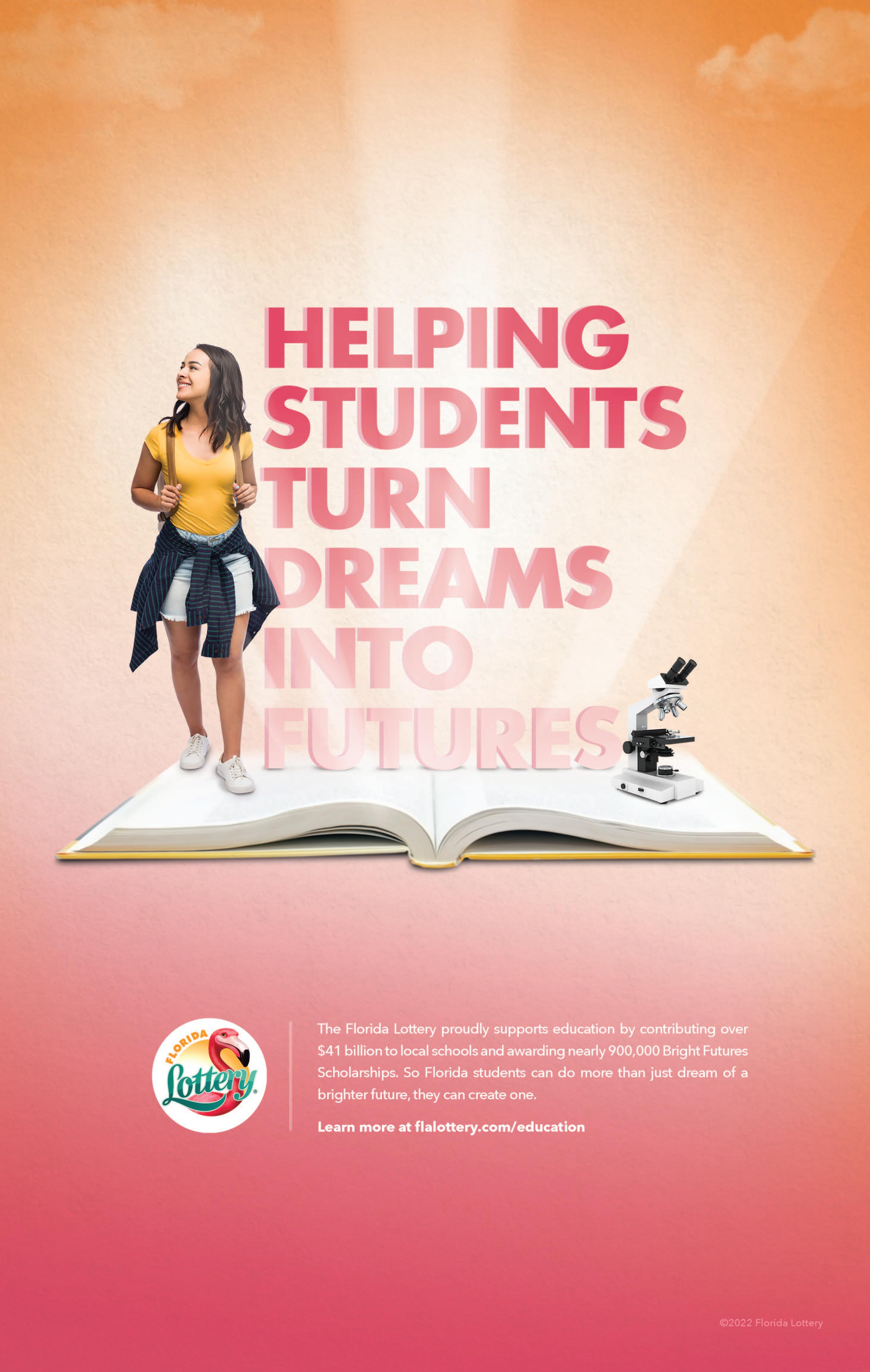
www.caribbeanamericanpassport.com 2
Guenet Gittens-Roberts Owner/Publisher/Editor

LIFEST Y LE
THE MORE THINGS CHANGE, THE MORE THEY STAY THE SAME
Samuel J. Roberts Owner/Publisher/Editor
The very first issue that we created thirteen years ago, was sent out digitally and as I read it recently I was surprised at how much what we wanted to achieve thirteen years ago is still at our core. It turns out the needs were the same as they are now. I know that over the years we did achieve this goal, however with the change in how media has been consumed, we have lost our hold again on connecting with our Caribbean community in a way that works through print
At the root of Caribbean American Passport's mission and vision is the connecting of our community. And we have found that our community is connecting through text, email, online and social media. We have to spend the time where the connections are best achieved.
Our community still needs connecting urgently and we have to create the best vehicle to do that.
Thirteen years ago, REV. DR. RAULSTON NEMBHARD sent us an email about an organization he felt was needed in the community:

"There are many Caribbean groups that are active in Florida and throughout the United States. Despite the great work that is being done the impact of these groups is hardly being felt in the American communities in which they reside. The power of Caribbean people to influence political and economic decisions is often taken for granted even though the Caribbean community is a potent and significant force to be reckoned with. The assumption often is that we cannot make a difference. The Council on Caribbean-American Relations believes that we can indeed make a difference; that a small, nimble dedicated group carrying out the purposes outlined below, and operating outside of the personal ambitions and agendas of the participants, can enhance the recognition and admiration that the Caribbean community truly deserves.
The objective of the organization is to function as a pressure and advocacy group on matters affecting the Caribbean community in Central Florida and the wider society.

2. To work with like-minded groups in the CaribbeanAmerican community to achieve common goals and objectives. To overcome the inertia and isolation that these groups often experience in getting needed change in the community. CCAR’s work is not intended to decrease or supplant the excellent work that is already being done by a number of these organizations and which can best be done by them in their particular contexts. CCAR will function more as a liaison partner between these groups on matters of mutual interest to the Caribbean community. CCAR will also work with other ethnic and minority groups to achieve mutual objectives, for example, in the areas of immigration, voting, mortgage, employment and youth concerns.
3. To be a think-tank that seeks to address and study serious issues that affect Caribbean people. To liaise with Caribbean governments on behalf of the Caribbean Diaspora with a view to fostering best practices of effective governance and other interests that need attention."
Thirteen years, later, the needs of our community remain the same. Much has changed and much remains the same. We are pivoting to be able to assist with these issues across our diaspora, more effectively. We ask for your support.
1969 Alafaya Trail • Orlando, FL 32828 Office: 407-427-1800 Fax: 407-386-7925
Toll Free: 877-220-8315
For Media Information email: Publisher: sroberts@caribbeanamericanpassport.com Info: .Info@caribbeanamericanpassport.com
Should you desire to review past copies of the publication go to http:// caribbeanamericanpassport.com and click on the 'Print Archive'.
Publisher&Editor...................................................................................Sam Roberts
Publisher ............................................................................. Guenet Gittens-Roberts
Editor&ContributingWriter ....Aleia Roberts
Contributing Writers: Tony Dyal
Contributing Photographers King Visual
Dillia
Castillo
Central Florida Distribution......................................................... .Danielle Browne
South Florida Distribution.............................................................Norman Williams
NorthFlorida Distribution Kadeem Roberts
Tampa Distribution...................................................................................Julian Pina
3 www.caribbeanamericanpassport.com
Copyright (C) 2016 GGR Marketing & Public Relations. All rights reserved.
Wellness Matters
By Aleia Roberts
Wellness matters because everything we do and every emotion we feel relates to our well-being.
In turn, our well-being directly affects our actions, our emotions, and our health (yes – there’s a difference). It’s an ongoing loop.
Therefore, it is important for everyone to achieve optimal wellness in order to subdue stress, reduce the risk of illness and ensure positive interactions. Of course, that’s easier said than done. as it feels like there are so many things to be stressed out about right now. It can be overwhelming, but let’s break it down into the eight dimensions of well-being and how you can create a wellness routine that meets your needs.

Emotional Wellness: Emotional wellness is all about the ability to understand your feelings, what causes them, and how to cope with the negative ones. It is important to pay attention to self-care, relaxation, stress reduction and the development of inner resources so you can learn and grow from experiences.
SpiritualWellness: Spiritual wellness allows you to develop a set of values and beliefs that help you seek meaning and purpose. Spirituality can be represented in many ways, including religion, but it can also be much more personal.
Intellectual Wellness: Intellectual wellness involves having an open mind when you encounter new ideas and
continuing to expand your knowledge. It encourages active participation in scholastic, cultural and community activities

Physical Wellness: Physical wellness relates to maintaining a healthy body and seeking care when needed. Physical health is attained through exercise, eating well, getting enough sleep and paying attention to the signs of illness and getting help when needed.
Environmental Wellness: Environmental wellness inspires us to live a lifestyle that is respectful of our surroundings. Environmental well-being promotes interaction with nature and your personal environment. cont'd on pg 10

4 www.caribbeanamericanpassport.com
Mental Health Issues May Qualify for Medical Marijuana Treatment
Editor’s note: This commentary is provided by the Medical Marijuana Education and Research Initiative (MMERI) of Florida A&M University.

Are mental health issues treatable with medical marijuana? That all depends on the issue.
Under Florida’s medical marijuana law, post-traumatic stress disorder (PTSD) is a qualifying condition for treatment as recommended by a qualified medical marijuana physician. But the law gives doctors some flexibility on treating ailments “of the same kind or class as or comparable to the others listed.” So, people struggling with, say, chronic bouts of anxiety, depression, or insomnia — symptoms of PTSD — may be eligible to receive a Medical Marijuana Use Registry identification card.
“There's no one pharmacological agent or medication that has been deemed the gold standard treatment of PTSD because PTSD is just a combination of so many different symptoms,” explains Dr. Delvena Thomas, a board-certified psychiatrist and neurologist. Her private practice in Fort Lauderdale focuses on psychotherapy, psychopharmacology, and alternative health, which includes CBD products and medicinal cannabis certifications.
But, she adds, “medicinal cannabis has proven effective in treating PTSD, a very specific type of anxiety. We classify it as an anxiety disorder, it's very specific. Patients do well with medicinal cannabis in treating their PTSD.”
A lieutenant colonel in the Army Reserve, Dr. Thomas has served on three combat tours in Afghanistan and Iraq, giving her a unique perspective of the invisible wounds war inflicts on
the mental health of returning veterans. PTSD, however, can affect all kinds of people who have been exposed to traumatic situations, even “vicariously just from seeing things on television and hearing about traumatic things; 9/11 is a good example,” she says.
She and Dr. Alexys Hillman, who practices osteopathic medicine and is a qualified medical marijuana physician in Pensacola, agree that mental health problems may arise during holiday seasons, like the one many Americans just observed. What should be an occasion for joyous celebrations among family and friends may instead trigger feelings of loneliness and suicidal thoughts, they say.
Regardless of the cause of a mental health issue, the doctors strongly advise against self-medicating, including using illegal marijuana or alcohol. For someone who is being treated with medical cannabis to help alleviate PTSD-like symptoms, they also warn against drinking alcohol or taking prescription opioids at the same time.
Visit https://bit.ly/Cannabis_MentalHealth to watch MMERI’s Conversations on Cannabis Virtual Forum featuring Dr.Delvena Thomas, a board-certified psychiatrist and neurologist & Dr. Alexys Hillman, qualified medical marijuana physician discussing the pros and cons of using cannabis as a mental health treatment.
www.caribbeanamericanpassport.com 5
Millions to Lose Coverage During the ‘Unwinding’
By Peter White
The Centers for Medicare and Medicaid Services (CMS) projects that some 8.2 million Medicaid recipients who reapply will no longer qualify and will have to transition to another source of coverage. Another 6.8 million will lose Medicaid coverage despite still being eligible.
The Biden Administration could extend the date of the Public Health Emergency (PHE) for another 90 days and the continuous coverage requirement would remain for another three months. However, at some point it would end.
Starting April 1, 2023, as many as 15-18 million Americans could lose health coverage provided during the COVID-19 pandemic by the Families First Coronavirus Response Act.
“Through COVID legislation, states have mostly kept people covered through Medicaid without interruption in exchange for an increase in their Medicaid federal matching funds,” says Farah Erzouki, Senior Policy Analyst, Center on Budget and Policy Priorities (CBPP). She spoke to reporters during an Ethnic Media Services briefing.
When that program ends, so will the continuous coverage requirement, and all 89 million Medicaid enrollees will have to reapply to renew their eligibility. Erzouki says enrollment in Medicaid grew to 89 million-plus people since February of 2020, an increase of 30%. It was the biggest experiment in universal health care since the 2010 Affordable Care Act (ACA) was passed in 2010.
“Access to coverage and healthcare services has been critical during this time of increased hardship. At the same time, this continuous coverage policy has meant that most Medicaid enrollees probably have not had contact with their Medicaid agencies in three years, and in some cases, even longer,” she said.
Erzouki said that people would have to do the paperwork in order to keep their medical coverage. People have moved during the pandemic or may not receive their renewal notice in the mail.
Erzouki said in the coming months Medicaid agencies are going to be overwhelmed processing cases and documents. She estimated seven million people could lose their coverage due to paperwork issues although they are still eligible.

“They need to make sure that their Medicaid agency has updated contact information for them,” said Laura GuerraCardus, CBPP’s Director of State Medicaid Strategy. Centers for Medicare and Medicaid have dubbed the end of expanded health coverage an “Unwinding.”
“Check your mail,” says Guerra-Cardus. People could receive letters at some point from either Medicaid or CHIP and they should complete the renewal forms if they get one, she says. If they don’t qualify, they may be able to get affordable coverage through the Affordable Care Act marketplace and can learn more by visiting www.healthcare.gov
“However, people are given a pretty limited time after they lose Medicaid coverage to transition to the ACA. So the concern there is that people won’t have enough time to enroll in the marketplace after they lose Medicaid coverage without experiencing some sort of gap in coverage,” she said.

www.caribbeanamericanpassport.com 6
Starting in April millions of families could see their health coverage disappear as the government unwinds pandemic-era policies.
Jamaican-Born Graduate and Orlando resident, Dr. Trisha Bailey, Makes Largest Athletic Donation to UConn in Its History
Cont'd from page 1
gift and having a building with her name on it. The donation acknowledges how UConn took a chance on her, seeing talents she did not know she had, and believing that she wouldtakeadvantageofanyopportunitiesgiventoher.
The new Bailey Student Athlete Success Center, a training and academic support facility comprising 80,000 square feet, will be home to six Olympic sports programs. It will house the men’s and women’s track and field and cross-country programs; women’s rowing, swimming, and diving programs; and women’s tennis and field hockey programs. The Bailey Center will also provide space for offices, academics, mental health, nutrition, strength and conditioning activities, and locker rooms, among other amenities. Construction of the new facility is slated to begin inthefallof2023.
Bailey, 45, was raised in Jamaica in a home without electricity or running water. She walked seven miles to school every day. She moved with her family to Hartford when she was 13 for a better life. They lived in a onebedroom apartment, but she was thrilled to have electricity andindoorplumbing.“Iwasinluxuryland,”shesaid.
She graduated from UConn in 1999 with a degree in human development and family relations. After graduation, she worked as a stockbroker in Hartford and started a recruiting firm. She earned an MBA and Ph.D. in management and organizational leadership with a concentration in finance from the University of Phoenix. Bailey also holds a pulmonary certificate from the University of Kentucky and a certificate in cardiology treatment from New York University.
She now lives in Orlando, Florida, and her company, Bailey’s Medical Equipment and Supplies, now includes Bailey’s Pharmacies, which has operations in Florida, Georgia, Tennessee,andTexas.
In Orlando her support of the mentoring organization, United Foundation of Central Florida is not just monetary, she is someone that the kids in the program know. She believes that those kids share the same story and can have the same success with support.
Bailey has five children and is on her way to being a billionaire, having become a millionaire by the time she was 35. Bailey made her fortune chiefly in the medical equipment industry before expanding into domestic and international commercial real estate.She is one of the wealthiest Black women in the United States and is a global leader in the medical equipment industry. She is the richest woman in the history of Jamaica, which she thinks is “pretty cool.” She is looking to do more in Jamaica now and owns part of an island off Jamaica’s coast where she is building a resort She was the first Black woman to own commercial properties in Florida’s Vero Beach and Edgewood and also owns the biggest equestrian farm in the state.
Her autobiography, “Unbroken,” will be released in the summer of 2023. In the book, she tells the story of her life and how she overcame numerous struggles to achieve success While we didn't get all of the stories, she does share some of the secrets behind her approach to life, in a video interview with our team.
Go to our website at: www.caribbeanamericanpassport.com for the full interview.


7 www.caribbeanamericanpassport.com
The Healing Realities of Merging Mental Health and Spirituality: Because Good Mental Health is The Birthright of Everyone in The Global Village
Leading Ladies on the Frontline for Mental Health Balance and Awareness with Nouchelle Hastings and Dr. S. Regina Robertson New Dimensions Global


Since we have crossed over into the New Year, it is crucial that each one be cognizant of the importance of good mental health and well-being as an urgent imperative for everyone, everywhere in the Global Village. If ever there was a time to show up mentally stable, it is now, because the failed strategies of thinking and being will bring the same results received in 2022. So, we must first understand and be willing to accept what good mental health looks and feels like. From the perspective of the World Health Organization (WHO, 2021), “Mental Health is a state of well-being in which the individual realizes his or her own abilities, can cope with the normal stressors of life, can work productively and fruitfully, and is able to make a contribution to his or her community.” This is their truth. However, as a reality, it is seldom prioritized or accomplished in its proper context for all of humanity.
And, if we were to deduct from historic and current data, you will note that factors such as: country of birth, race and ethnicity, socio economic status and cultural mores, housing, education, employment and income, gender disparities, food insecurity, access to quality and affordable health care services, and the damaging effect of climate change on the environment, to name a few, have proven themselves to cause significant threats to the health and well-being of others. Then again, irrespective of these variants, we as a people, continue to grapple with the Global stigma, fear, shame, and discrimination that’s often associated with mental illness. Such a discourse serves to perpetuate a false narrative which has been instrumental in feeding the above mentioned and has proven to be detrimental to the overall wellbeing of individuals and family systems. Therefore, it is not difficult to understand why this aspect of healthcare continues to vie for the same respect and favor that is afforded other “illnesses” on a Global basis. With the advent of COVID-19 as a deadly world-wide pandemic, its tentacles of isolation, fear, uncertainty, and the inequitable distribution of resources, further compounded an already tenuous situation. Suffice it to say, this continuing turmoil has led to increasing levels of mental insecurity worldwide. However, in this environment of chaos and flux, lies a window of opportunity to transform the perception and care of mental health and wellbeing for
the betterment of humanity within the Global Village. If ever there was a time to merge mental health and spirituality, it is now. Yet, to fully understand and underscore the legitimacy of any storyline that is antithetical to Your Truth- the Truth of Who you are, will require the courage to change your current misconception about who man says that you are.
The Necessary Question. Has anyone ever told you that you came to this earth locked and loaded with everything needed to begin the journey called life; and within you, lies a built-in propensity to successfully complete your Divine purpose for being Chosen and Sent on a specific Earthly Mission? If so, it is critical that you live your life being aware that good mental health and wellbeing is your birthright. If not, know that It cannot be purchased nor favored upon you. It’s already yours by reason of Who created and designed you for purpose. THIS IS HIS TRUTH for your life. Thus, regardless of where or how you made your entrance, it is not something you should have to struggle to achieve. Your Creator ensured that you came prepared to succeed in every area of your life, regardless of the challenges you would encounter along the way.
When you understand Who you are, and that this Never changes; Who your father is, and that He is The King of Kings, which means that you are Royalty; that no monarchy on earth has more power and authority than you have; that you’re here to Rule and Reign in a predetermined lane, irrespective of people, places, spaces, circumstances or things; and that His promises are immutable! It shall be well with you.
You were never given the spirit of fear, instead your birthright is inclusive of the spirit of power, love, and a sound mind. Having the Creator’s mindset indicates that there is no room in your vocabulary for a “can’t do” type of mentality, which is vital to the ability to govern yourself
8 www.caribbeanamericanpassport.com

9 www.caribbeanamericanpassport.com
Wellness Matters

 By Aleia Roberts Cont'd from page 4
By Aleia Roberts Cont'd from page 4
Financial Wellness: Financial Wellness involves the process of learning how to successfully manage financial expenses. Money plays a critical role in our lives and not having enough of it can make a big impact. Financial stress is repeatedly found to be a common source of stress, anxiety and fear.
Occupational Wellness: Occupational wellness is about enjoying your occupational endeavors and appreciating your contributions. This dimension of wellness encourages personal satisfaction and enrichment in one’s life through work. Do you enjoy what you do for a living? Why or why not? What can you do to change things so that you feel more fulfilled? This doesn’t always require a new job – maybe just taking on some new responsibilities within your workplace.
Social Wellness: Social wellness helps you interact with others in social settings effectively and create a support network. This dimension of wellness allows you to not only develop encouraging relationships with peers, intimate relationships with romantic partners, and loving relationships with your family members. The first step in improving your wellness is reflection. Which of the 8 dimensions do you feel are areas in which you are content? Which dimensions need improvement? What steps can you take to improve in these areas? Who can you reflect on this with?
The next step is to set goals for yourself. Start small. If you need to work on your physical wellness, try setting the intention to stretch every morning when you wake up, incorporate a daily walk into your schedule, or develop an exercise routine that suits your schedule.
Step three is to start working on the goals you set. How are you going to achieve them? Who do you know that is excelling in these areas, and what can you learn from them?
The final step is to check in with yourself routinely. What progress have you made? Celebrate your wins, even the tiny ones. What dimensions are still lagging? What has blocked you from improving?
www.caribbeanamericanpassport.com 10
Black Panther actress Letitia Wright goes home to Guyana for visit


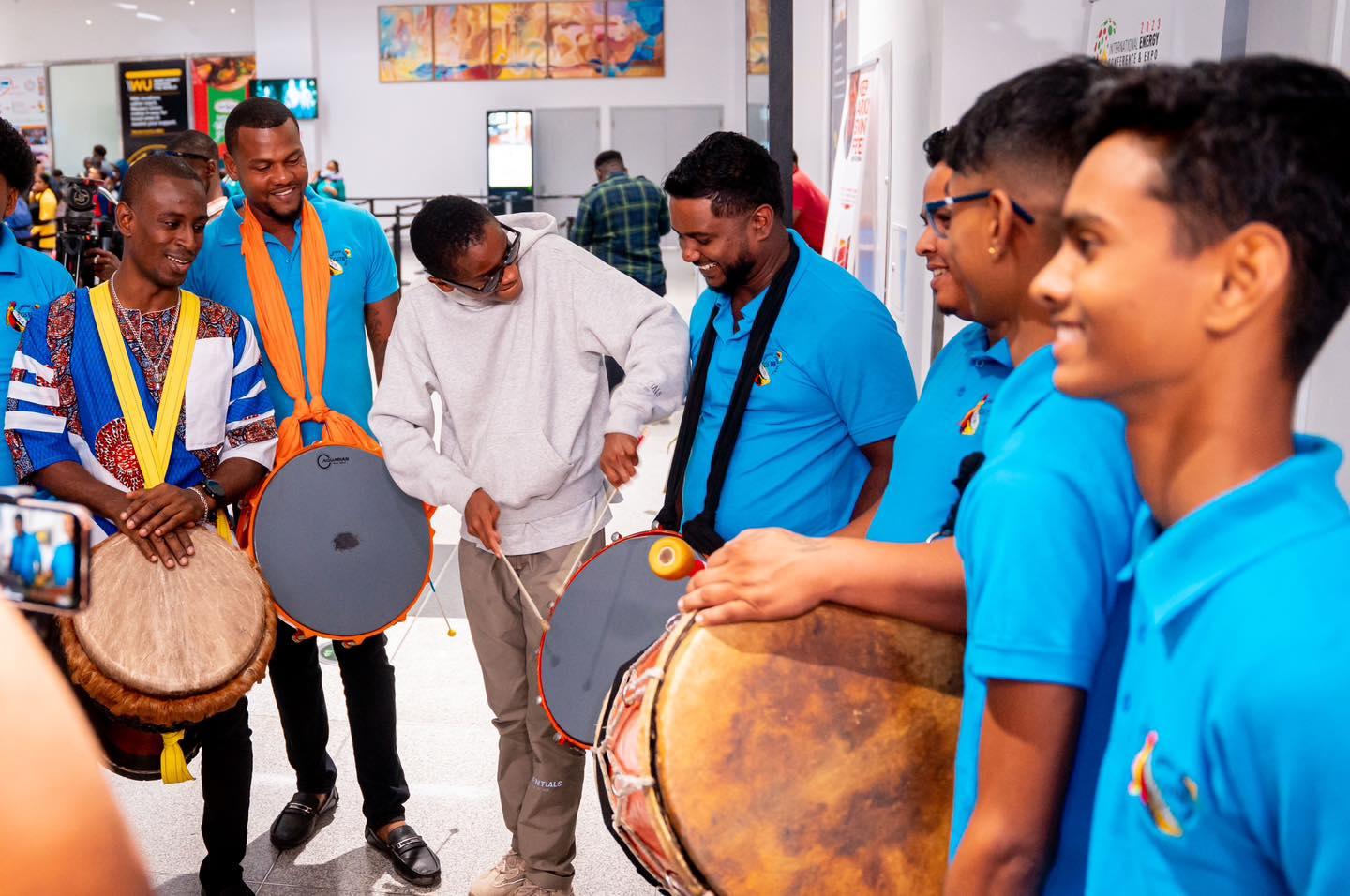
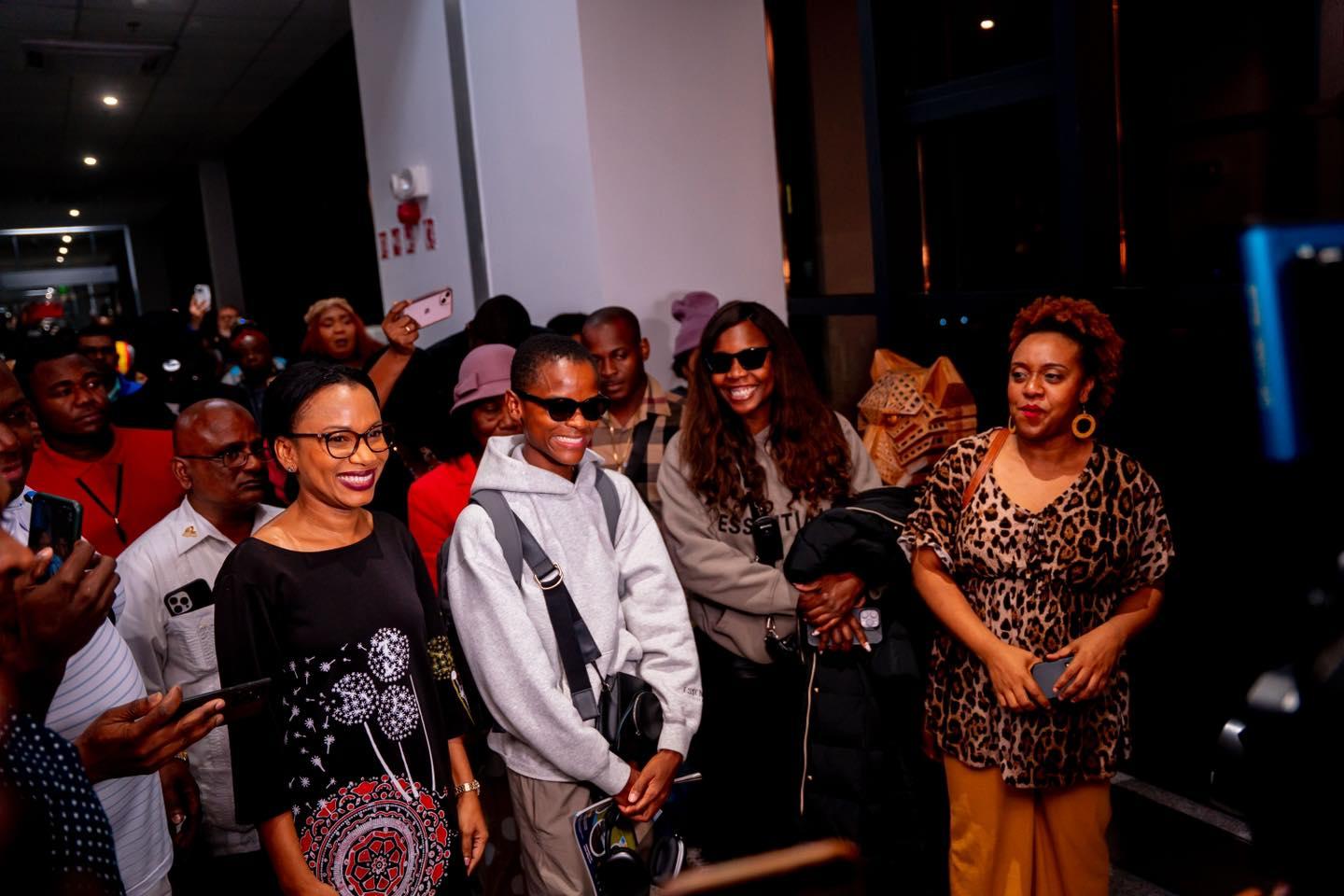
This country is in my bloodline.
I go home and there is pepperpot and bread.
I go home and there is yana in the very fabric of all that I do and all that I am.
I have not been home but home has not left me.”

11 www.caribbeanamericanpassport.com
“This country is a part of who I am.
Letitia Wright
Photos courtesy, The Ministry of Tourism, Industry and Commerce
Guyanese born, movie star, Letitia Wright goes home, she was welcomed at the Airport by the First Lady and the Minister of Tourism with a cultural performance at a brief reception hosted at the Airport.
The Healing Realities of Merging Mental Health and Spirituality: Because Good Mental Health is The Birthright of Everyone in The Global Village
accordingly and maintain a healthy state of wellbeing. The result of such a move would be the attainment and affirmation of a “wisdom set” which goes beyond present day realities and catapults you into a space in which “foolish things” are neither welcomed nor tolerated. Sense and sensibility kicks in and is displayed in every facet of your being as you are transformed to live, speak, Rule and Reign on behalf of your Father and His Heavenly Kingdom. Thus, during periods of Psychological Turbulence and Manufactured Chaos, you do have the ability to move forward, stay focused, heal yourself with His word. It’s about breaking the prisoner mentality while meditating on His Truth which admonishes you to be anxious for nothing and guard your heart and mind with those things that are true, noble, just, pure, lovely, and of a good report. This will help to build your self-esteem.
Showing up with your scars and owning those emotions that get in the way of your authenticity can change your narrative. He gave you power and authority to renew your mind and be transformed. What is hidden and held in the prison of your soul may not be understood in its entirety, but you must trust Him because you’re coming out as pure Gold; Your Mental Health Matters to Him.
When you were created, it is written that you were “very good.” Taking care of your business requires that you stop, reflect, and reorient yourself to this Truth. Moving from where you are to where you ought to be, requires that you endure a process that is meant to transform and not destroy you.
This process is meant to prepare you to successfully complete your Divine assignment. As a result of this, there may be childhood and other experiences that were very traumatic to your overall health and wellness, the likes of which were kept hidden when they should have been addressed. You may be undergoing current situations of gender abuse at home, in the workplace, at church and other venues. Yet your Creator remains constant with His promise to strengthen, establish, secure, and heal you. Why? Because your story may very well be the healing salve that’s required to bring about restoration and deliverance to others… Beloved you must know that forgiveness plays a significant role in a transformed life. See the Savior as a prototype of what forgiveness looks and sounds like. Do it for you and for others. This is where compassion envelopes you as you envision yourself walking in the shoes of the offender. It’s about Him and not you. You can do this, Yes, you can!
Seeking help from the local place of worship is often the first line of defense for some people. For others, their place of employment or personal references are some of the ways in which help is sought. You may need to go through this process to become your authentic self and there is no stigma, no shame, and no blame associated with this decision. Remember this: Showing up emotionally well is essential for the fulfillment of your Divine purpose here on Earth.
“Mental Health Balance – breaking the stigma you no longer have to suffer in silence; especially our faith-based community and population.” Nouchelle

12 www.caribbeanamericanpassport.com
In Florida Schools, there is now a ‘Blatant Attempt to Divide Communities of Color’
By Sunita Sohrabji
Florida is considering an AAPI (Asian American) curriculum in the state's K-12 public schools just as it recently rejected an AP African American course. AAPI advocates see this as an effort to divide communities of color.
Controversy swirls around the K-12 school curriculum in Florida where, under pressure from Gov. Ron DeSantis, the College Board released a new, stripped-down version of an AP African American studies course. The move comes as state lawmakers consider implementing an Asian American studies program statewide.


Civil rights advocates describe the move as a “blatant attempt to divide communities of color” in the state.
They are “weaponizing the use of race,” said John C. Yang, President and Executive Director of Asian Americans Advancing Justice (AAJC). “This is whitewashing history. It is not a proper understanding of history.”
Bowing to DeSantis’ objections, the College Board Feb. 1 released a new, stripped-down version, taking out references to the Black Lives Matter movement, Black writers who also happened to be gay, the Black feminist movement, the quest for reparations, and Black queer history, among other subject matters.
But Yang says it’s critical that the histories of all communities are taught for a fuller picture of the American experience. “We want a
full telling of history,” he said. “All communities of color must work together to ensure that all of our histories, including their complexities, are taught. All of our histories are relevant.”.”
In a Jan. 31 op-ed for The New York Times, Janai Nelson, president and director-counsel of the NAACP Legal Defense Fund wrote that DeSantis was trying to erase Black history.
“Florida is at the forefront of a nationwide campaign to silence Black voices and erase the full and accurate history and contemporary experiences of Black people,” she stated, noting that several civil rights organizations have filed lawsuits challenging the “Stop Woke” law.
“Florida’s rejection of the AP course and Mr. DeSantis’s demand to excise specific subject areas from the curriculum,” Nelson continued, “stand in stark opposition to the state-issued mandate that all students be taught the history of African Americans, including the history of African peoples before the political conflicts that led to the development of slavery, the passage to America, the enslavement experience, abolition and the contributions of African Americans to society.”
13
Millions to Lose Coverage During the ‘Unwinding’
For individuals or families that get — or could get — health insurance through the public marketplace, the opportunity to choose coverage for 2023 is nearing.
Open enrollment, when you can pick a health plan for next year, runs Nov. 1 through Jan. 15 for the federal marketplace at HealthCare.gov and most state exchanges. Generally speaking, people who get coverage this way are self-employed or can’t get workplace insurance, or they don’t qualify for Medicaid or Medicare.
Nearly 13 million of the 14.5 million people enrolled in private health insurance through the public marketplace — which was authorized by the Affordable Care Act of 2010 — receive subsidies (technically tax credits) that lower what they pay for premiums. Some people also may qualify for help with cost-sharing such as deductibles and copays on certain plans, depending on their income.
Here’s
what they need to know for 2023.
Premiums are rising by 4% to 5% on average
Be aware that premiums are rising nationally next year by about 4% to 5% on average, said Cynthia Cox, director for the Kaiser Family Foundation’s Affordable Care Act program.
However, she said, there is a lot of variation among states. For example, in Virginia, premiums are dropping by an average of 18% and in New Mexico they’re rising by 14%, Cox said.
“Most fall between a 1% and 7% increase,” she said.
If you have marketplace coverage and are facing a large premium increase, you can always check to see if there’s a more affordable option available, Cox said.
More generous subsidies are still in effect
However, more generous financial help remains in place.
That is, temporarily expanded subsidies that were put in place for 2021 and 2022 were extended through 2025 in the Inflation Reduction Act, which became law in August.
This means there is no income cap to qualify for subsidies, and the amount anyone pays for premiums is limited to 8.5% of their income as calculated by the exchange. Before the changes, the aid was generally only available to households with income from 100% to 400% of the federal poverty level.
The marketplace subsidies that you’re eligible for are based on factors that include income, age and the secondlowest-cost “silver” plan in your geographic area (which may or may not be the plan you enroll in).
Be sure to give a good estimate of 2023 income
Because the amount of your subsidies is based at least partly on your income, you’ll need to estimate it for 2023 in the signup process.
Giving a good estimate matters. If you end up having annual income that’s higher than what you reported
when you enrolled, it could mean you’re not entitled to as much aid as you’re receiving. And any overage would need to be accounted for at tax time in 2024 — which would reduce your refund or increase the amount of tax you owe.
“You don’t want a nasty surprise when you do your taxes the next year,” Cox said.
Likewise, if you are entitled to more than you received, the difference would either increase your refund or lower the amount of tax you owe.
Either way, at any point during the year, you can adjust your income estimate or note any pertinent life changes (birth of a child, marriage, etc.) that could affect the amount of subsidies you’re entitled to.
The ‘family glitch’ is generally fixed, starting in 2023
Workers who don’t get employer-sponsored health insurance that’s considered “affordable” — no more than 9.61% of income this year — are permitted to sign up for a plan through the marketplace. However, the measurement of affordability is based on the cost of employee-only coverage.
That’s the case even if a worker wants their dependents covered too — meaning the actual cost of family coverage could far exceed that threshold.
As of 2023, here’s how it will work: If the workplace coverage for a family would be unaffordable, the employee would need to stay on the employer plan, while the spouse and kids would be covered by the marketplace — and eligible for subsidies, Cox said.
“That means families would be split between two or more health plans, which would mean having multiple premiums and deductibles,” she said. “Not all the people in the family glitch will actually be better off moving onto subsidized coverage.”
$30.00 per year. We are moving to a primarily subscribed platform.
Name Date
St.Address __________________________________________________
State _____ City _____________________________ Zip _______
Phone___________________Email______________________________
Signature____________________________________________________
Please mail this subsciption with your check or money order to: Caribbean American Passport NewsMagazine 1969 S. Alafaya Trail, Suite 133, Orlando, Fl. 32828 407-427-1800
14 www.caribbeanamericanpassport.com
CaribbeanAmerican Passport News Magazine Getthenewsdelivereddirectlyto your
ubscribeto
our ourdoor.
CASSAVA ALLEY & PEYTON PLACE
By Tony Deyal
In my early years, when I lived in the sugar belt of Trinidad, just when I was about nine years old the younger boys were told by the older ones that if you wanted to have a bigger male organ, you had to measure yours, cut a cassava plant to that size and bury it. Unfortunately, the much sought-after result did not materialize. However, in the immediate post-war period where almost everything, foodstuff especially, was rationed, the cassava came in very handy.
(To my friends of Cassava Alley, Trinidad, and all the other Alleys in the Caribbean. You asked for it!)
Nineteen and having got my first salary, I was under the street lamp just up the road from my house, gambling away my money, when I heard shouts of, “Police! police!”
My family had been forced to move from the sugarcane belt of Central Trinidad to Grell Steet in the oil-field town of Siparia in the south. There, apart from playing cricket or football in the evenings, I had nothing to do but hang out or ‘lime’ under the street lamp where we gambled, told dirty jokes and picked the team for the next match. We constantly teased the girls passing by with endearments like, “Darling, of all my sugars, you are my granulated!” or threatened their boyfriends if they were not from our neighbourhood. Because we were on the outer boundary of an area named Cassava Alley, which had no streets, no lights and harboured fugitives from the law, we always had a lot to talk about, and even more to hide from the police.
Normally, the police avoided the ‘Alley’ because they were not sure what they would meet there. In this case, however, they were armed with ‘bullpistles’ (aka whips made from dried bull penises). Speed was of the essence and I headed into my Chanel No. 5 – Cassava Ali. I was running as if the Dogs of Hell were behind me (and maybe they were). I was sweating, blowing and about to collapse when I ran up the steps of a house and begged for help. “Hide me, Police!” I stuttered. The owner of the house made me sit on a chair next to her two grandchildren, put a cup of coffee and a plate in front of me and advised, “If the police ask you anything, tell them you teaching the children English.”
NOLAN (AKA TUNOS)
One Carnival Monday as we were about to set off for the ‘best band’ contest, we realised that there were no wheels on Nolan’s bass. Nolan, in the midst of a good cussing for his carelessness, said, “Wait, ah coming back jest now.” He left walking but returned on a bicycle from which he calmly stripped off the tyres and put the wheels on his ‘pan-mobile’.
Whatever other forms of petty larceny he dabbled in, Nolan’s first love was stealing cattle. He would subsist for a while on marking cards, stealing fruits, gambling, taking candy from babies and sundry other peccadillos, but then he would head straight for the nearest cowshed. He was a barn rustler. There was never a cow that he did not want to steal. He would walk into your pasture and take your cow and, when the police caught him one night stealing one that was tethered in the Siparia savannah, and asked, “Where you going with that cow?” Nolan looked back and around and asked, “What cow dat? Me eh see no cow.” Another time, the police saw Nolan with a rope in his hand attached to which was a cow. His explanation was, “Officer, I was standing up here good, good and this cow was passing and the rope catch up on mih foot and, just as I was unwrapping it from mih foot all-you come and find me.” It didn’t work. Nolan went off to his home away from home, the Royal Jail, cowed but not daunted.
FECO AND OTHERS
One of my best friends and ‘liming partners’ Franklin (aka Feco), was as lethal a pelter with the cricket ball as with a stone
or stick ‘licking down’ mangoes from the tallest trees. He was so deadly that not even the leathery skin of an iguana could stop a piece of molten lead propelled from Feco’s slingshot.
Around this time, we changed the name of Cassava Alley to ‘Peyton Place’ because of the 1956 book by Grace Metalious which became a movie and America’s first “prime time” TV show. It continued for years to shock Americans (and titillate Trinidadians) with its tales of secrets, sex, and hypocrisy in a small New Hampshire town. Interestingly, nobody complained, especially the police, who felt it was the right name for our community. Our position was that there was another ‘Cassava Alley’ in the town of La Brea where, “All they have there is pitch. We have bacchanal like bush.”
Apart from Feco, we had Jimmy who, while running from the police, knocked down a latrine in which Nolan and his father were fighting for the right to hide. There was Mud, a young lady who was arrested for loudly changing a key word in the calypso, Archie Buck Them Up, to one that the police considered totally inappropriate. There was ‘Ambition’, who earned the nickname because he never went anywhere without a tie. Most of all, there was Ross, the first person I met who had no fear and absolutely no conscience. Once, when three men were hassling my girlfriend and I was going after them, Ross threw me down with, “You have exam to write” and left all three on the ground. There was also Bread Boy who got his nickname because his father owned a bakery. He threw a beer bottle with deadly accuracy so we called him ‘Bren Gun’. One night, in a fight in a club, one of the ‘bad-johns’ was hiding behind an upturned table, popping up occasionally and throwing his bottle with relatively good aim but not hitting anyone. Bren Gun waited for him and, the next time the man’s head popped up, Bren got him with a bottle straight to the forehead.
IVAN MARCHAND (AKA RABBY)
Rabby was our leader. He took a wild bunch of ex-convicts, would-be bandits, petty thieves, unemployed young men, gamblers, drinkers, womanisers, no hopers and sometimes dopers, and the supposedly innocent like me, and welded us into a cricket and football team that won all the competitions we entered.
Rabby was only interested in winning. What he had, more than everyone I’ve ever worked for, or with, including prime ministers, was leadership. Rabby was the best natural leader I ever met. Even though he boasted that “all his convictions were for wounding”, he did not need to resort to physical dominance –he was in charge and everyone knew it and respected him. What I have learnt since is that every country has its rabbi, but there was only one Ivan Marchand.
I also learnt that I was not the only player in the games of Cassava Alley or other ‘Alleys’ in the Caribbean. In my many years around the region, I have met many better and faster runners, more stories to tell, more leaders to fear or admire, more Rosses, Bread Boys and Nolans. And, everywhere I went, I found overwhelming proof that we have more in common than we have differences. In every ‘Alley’ there are always characters very much like the ones I have written about.
*Tony Deyal was last seen saying, if you like cricket, football, reading and jokes, you’re right up his alley.
www.caribbeanamericanpassport.com 15

16 www.caribbeanamericanpassport.com
The Sanctuary Opens it's doors. The First Solar Powered Assisted Living Facility in the State of Florida

This Memory Care community is set in a residential setting which helps to lessen the anxiety of it's residents. The family model is re-created so that it reminds them of home. They still have a sense of community.

It is a community that has brought together 4 dynamic owners to create this facility:
Owner, Edith Bort arrived in the United States from Bolivia with the firm intention of fulfilling the "American dream." She is owner of the Bort's family of homes, three bilingual facilities.The Unique model of caregiving support for this Memory Community is provided by the owner/ administrators with combined experience of 20 years. They have cared for their own and assisted other families so they are uniquely qualified.
Owner, Marcia Miller is from Jamaica and opened her first home to serve the needs of her older aunt Dorothy. Today, that home, Serenity Adult Family Care Home provides a more person centered approach to care for their residents in a five bedroom community.
Owner, Debbie Miranda, assumed the caregiving role to her parents while holding a full time job. They were
diagnosed with Parkinson's/Dementia and Diabetes. This required 24/7 care as caregiver/advocate. After they transitioned, she realized her God given passion was and is caring for seniors.

Owner, Pauline Rose-Blake's, mother became ill and was diagnosed with stage 4 cancer. She became her caregiver, and credits that time with teaching her an important lesson "Each day as her health deteriorated, I understood the importance of making the most of every moment. I learned the importance of laughter and compassion. "
One of the important components of this model that the Sanctuary has created is staffing consistency. Additionally the caregiving support for this Memory Community is provided by the owner/administrators with combined experience of 20 years. They have cared for their own and assisted other families so they are uniquely qualified.
Because care is provided by all 4 owners the consistency and routine of the same faces alleviates confusion and promotes safety.
Find out more about this facility by visiting their website at www.yoursanctuaryassistedliving.com.
Owner Marcia Miller
Soca Reggae 5k & Wellness Festival


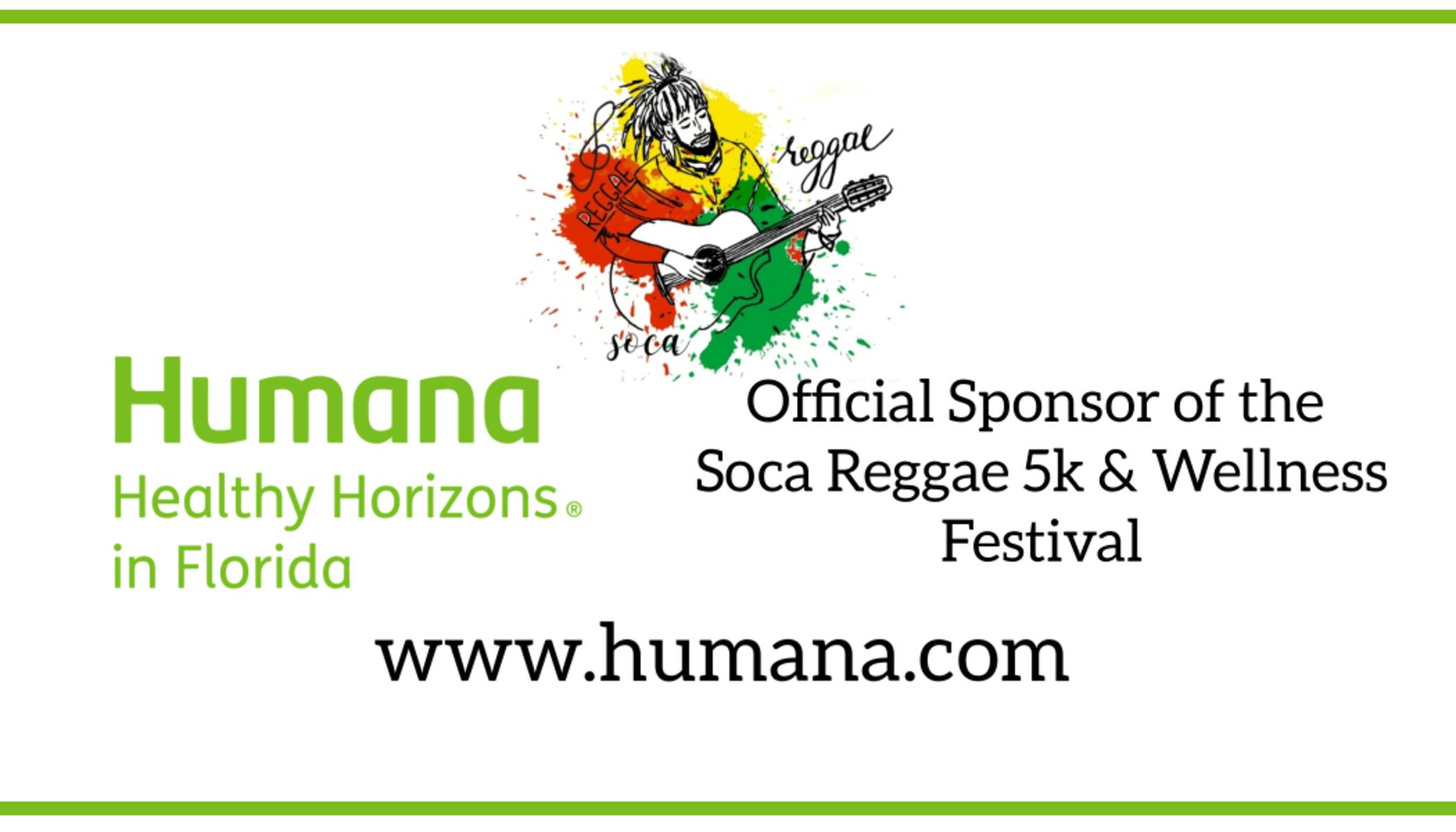

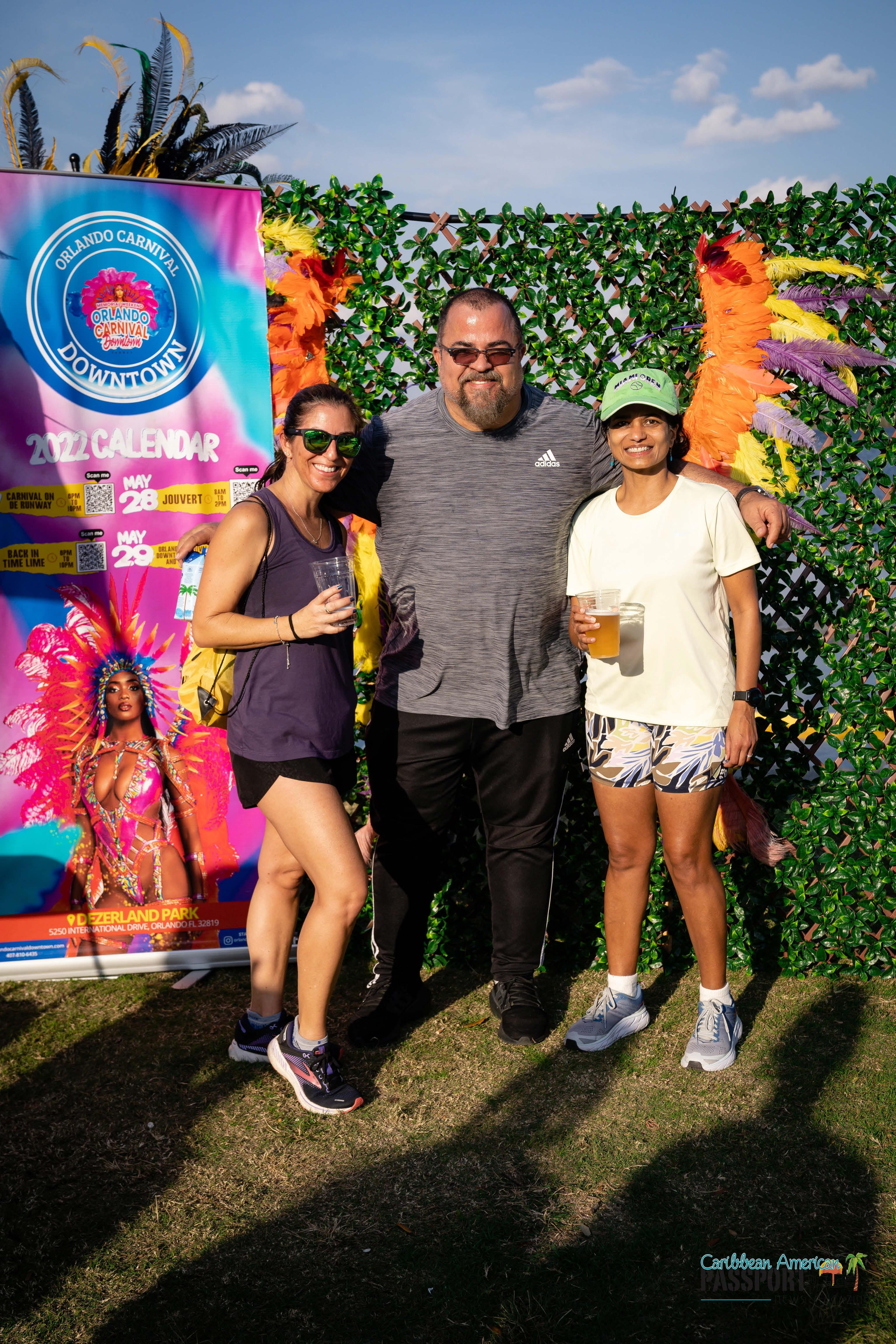
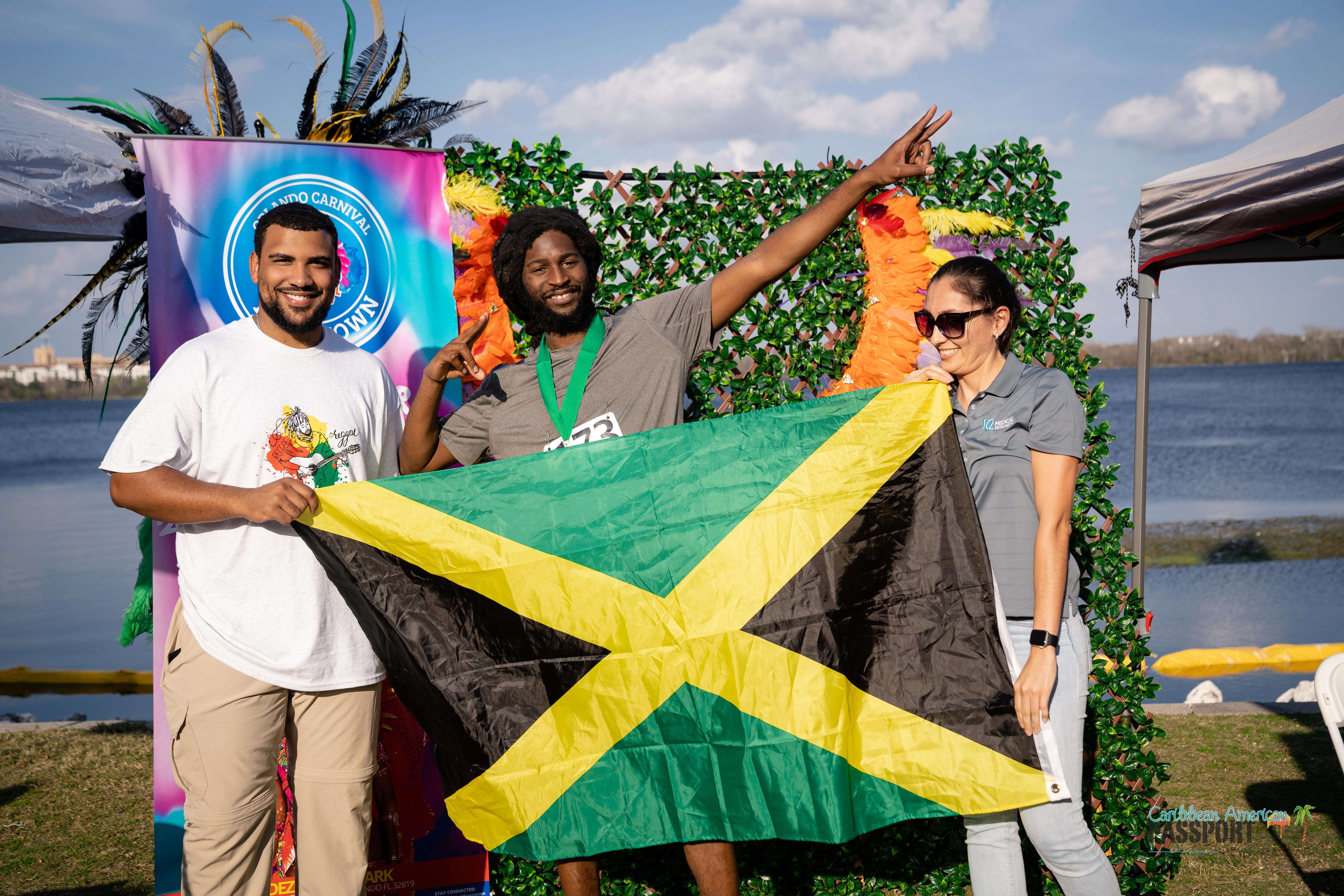


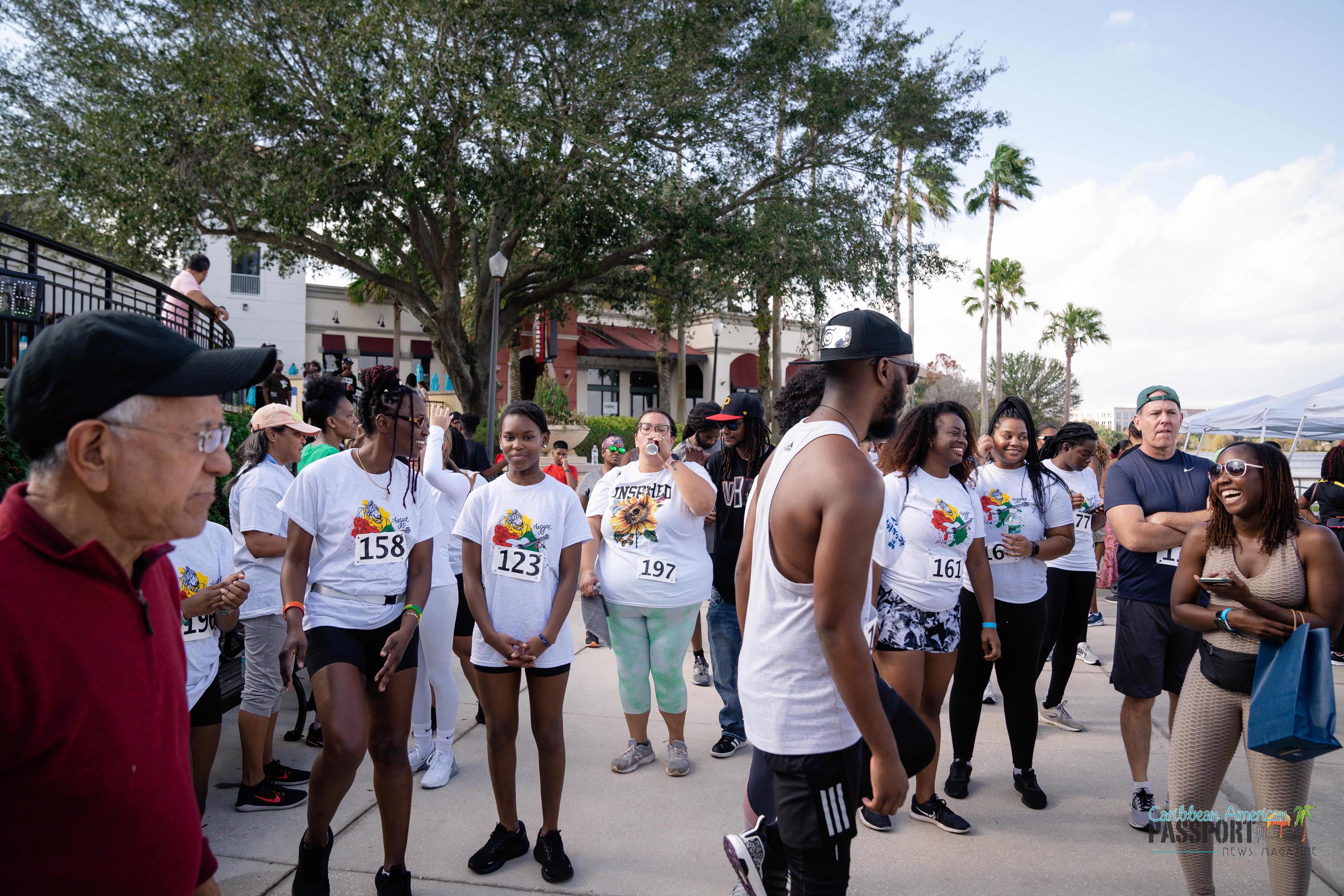

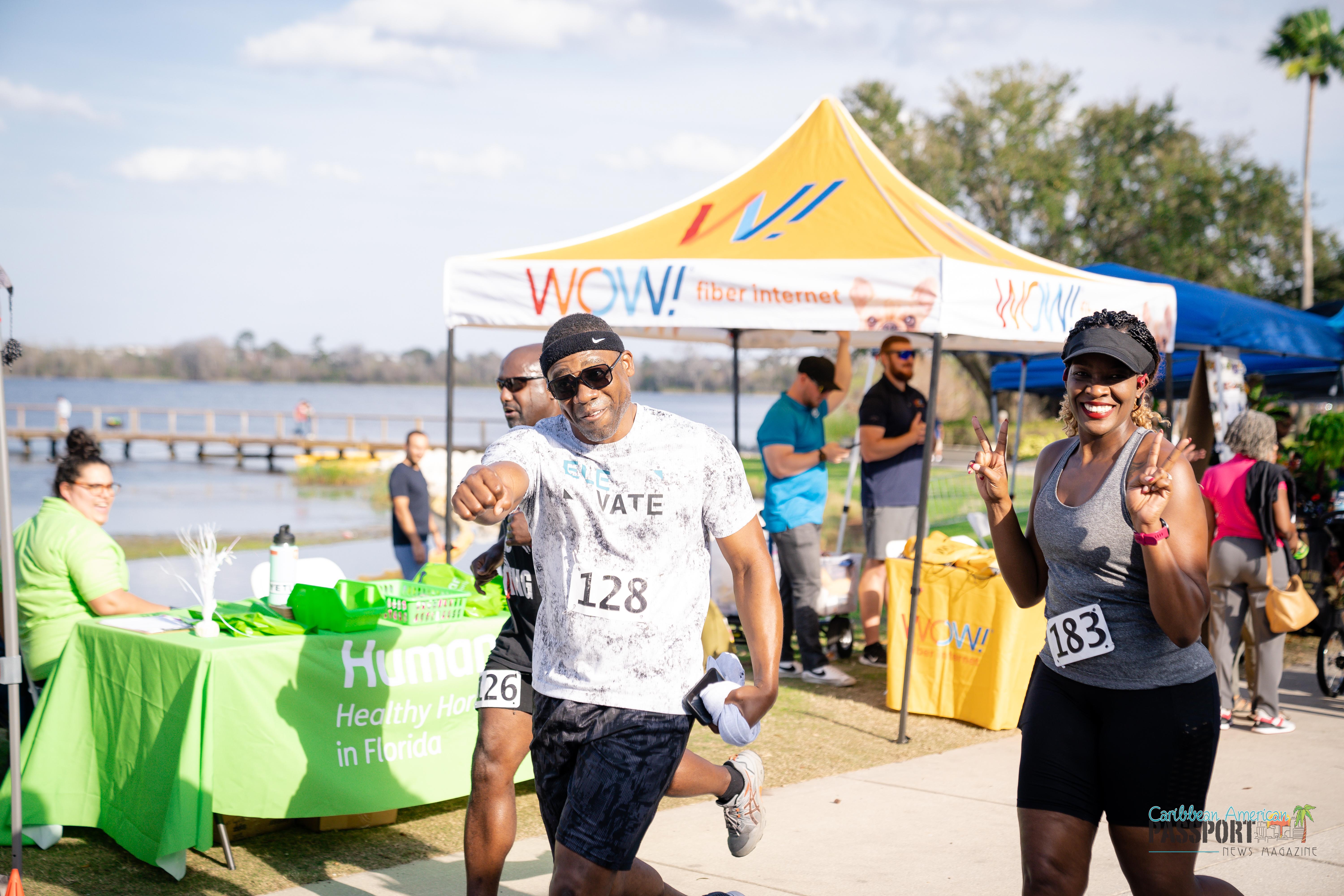

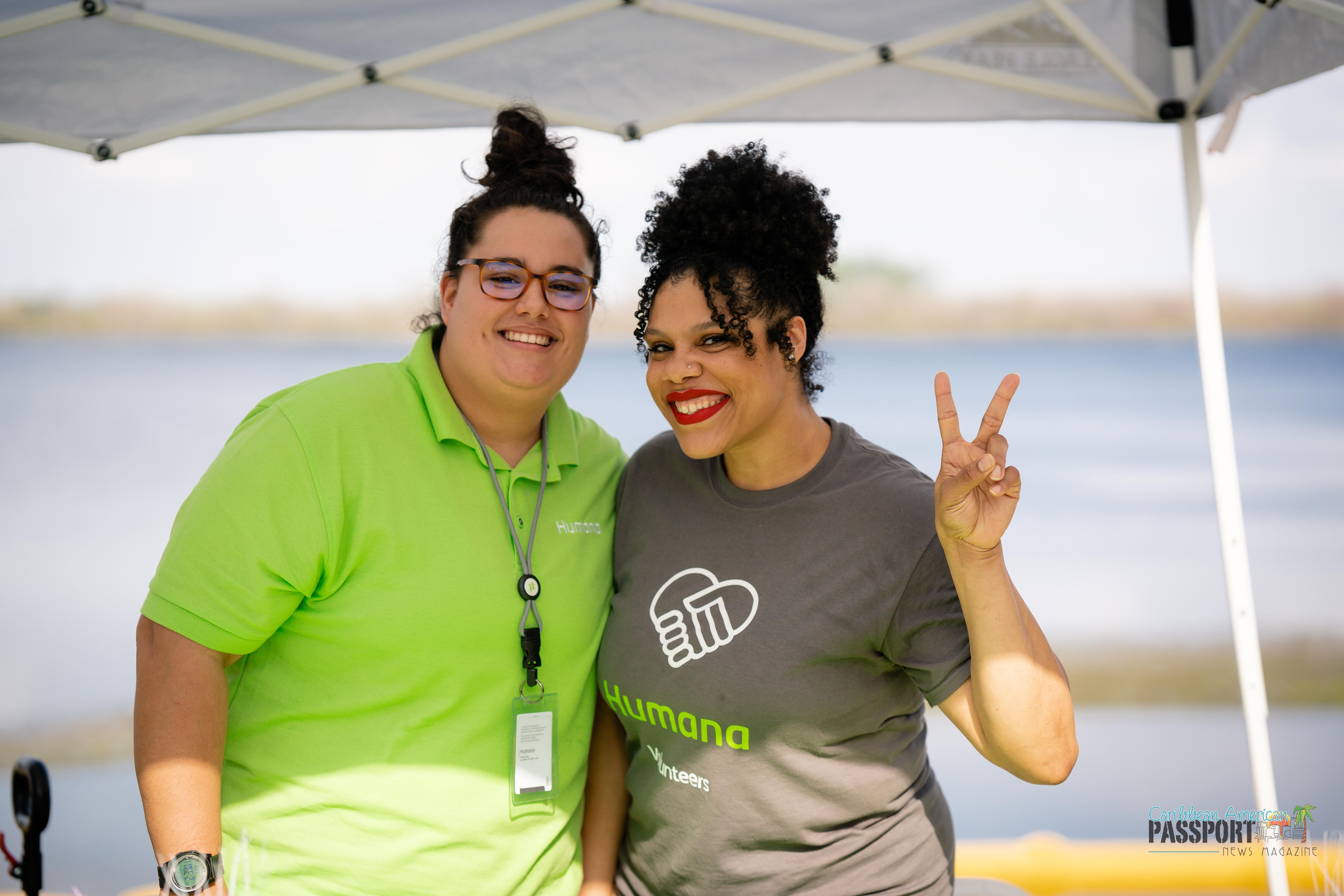

www.caribbeanamericanpassport.com























 By Aleia Roberts Cont'd from page 4
By Aleia Roberts Cont'd from page 4



























